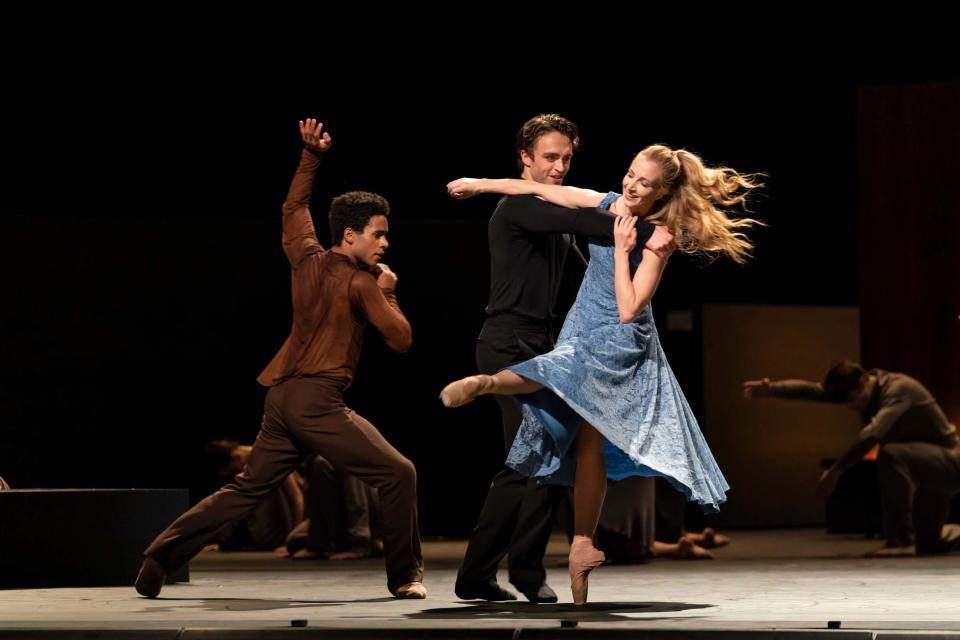Dances at a Gathering/The Cellist review: Passion and pain in story of musical genius Jacqueline du Pré

Ballet is no stranger to a good love story, but The Cellist, based on the life of the great Jacqueline du Pré, is not your typical boy-meets-girl tale.
This 65-minute work – Cathy Marston’s first for the main Covent Garden stage – tells of Du Pré’s growing fame, her marriage to the pianist and conductor Daniel Barenboim, and her battle with multiple sclerosis, the disease which would ultimately kill her at the age of just 42. But mainly it’s about a musician’s love affair with her instrument, of the passion that comes with performing – and the pain when you are no longer able to do so.
Marston is one of Britain’s most interesting dance narrators, a choreographer who’s not afraid to take a difficult tale – be it Ibsen’s Ghosts or Nabokov’s Lolita – and make it her own. She approaches Du Pré’s disability with sensitivity, engaging our sympathy without descending into mawkishness. Her decision to make Du Pré’s cello a living, breathing character in its own right is fascinating – the multiple pas de trois between Barenboim (Matthew Ball), Du Pré (Lauren Cuthbertson) and the instrument (Marcelino Sambé) are among the evening’s best.
But outside the trio, the staging flounders. Marston floods her set, all sleek cello curves and strip lighting, with dozens of bodies: some are characters, others pieces of furniture, an orchestra and even MS symptoms. It’s cluttered, distracting – and unnecessarily busy.
From narrative ballet to pure dance. Jerome Robbins always insisted his 1969 Dances at a Gathering, set to dreamy Chopin, had no story – ‘THERE ARE NO PLOT AND NO ROLES’ he famously wrote to Ballet Review, complete with shouty capitals – but with each generation of dancers, new stories are seemingly born. It’s also a showcase for the Royal’s very different stars – an elegant Marianela Nunez, musical Francesca Hayward, playful Alexander Campbell and witty Laura Morera. Sublime.
Until March 4, Royal Opera House (020 7304 4000; roh.org.uk)

 Yahoo News
Yahoo News 